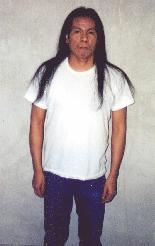| Remember Jerald Harjo | |||||||
|---|---|---|---|---|---|---|---|
| Home | News | Jerald | Case | Victim | Links | Contact | |
 |
Oklahoma finds new source of execution drugs(source: United Press International) The Oklahoma Corrections Department has found a new source of drugs for executions after a hospital stopped selling the lethal combination to the state agency, a corrections spokesman said Friday. The McAlester Regional Health Center stopped providing the lethal cocktail of 3 drugs after pressure from Human Rights Watch, an organization that opposes the death penalty. The drugs had been provided for 20 years to the state prison in McAlester. In a letter to the group, Joel Tate, the hospital's chief executive, said the hospital should not be selling drugs used in executions. "What does seem clear ... is that assisting the state in the implementation of the death penalty seems inconsistent with the mission of acommunity hospital," he said. Hospital officials said they were not aware of the sales to the corrections Department, because executions had been so rare in Oklahoma until recently. The state has executed 13 convicted killers this year, more than any other state. Jerry Massie, a spokesman for the corrections department, said the drugs would be drawn from the agency's own pharmacy for future executions. Jerald Wayne Harjo is scheduled to receive a lethal injection July 17 for the 1988 slaying of a Seminole County woman. Massie said the drugs used in executions are commonly found in all hospital systems. Sodium thiopental causes unconsciousness. Pancuronium bromide stops breathing. Potassium chloride stops the heart. Oklahoma has been used lethal injection since 1990. |
